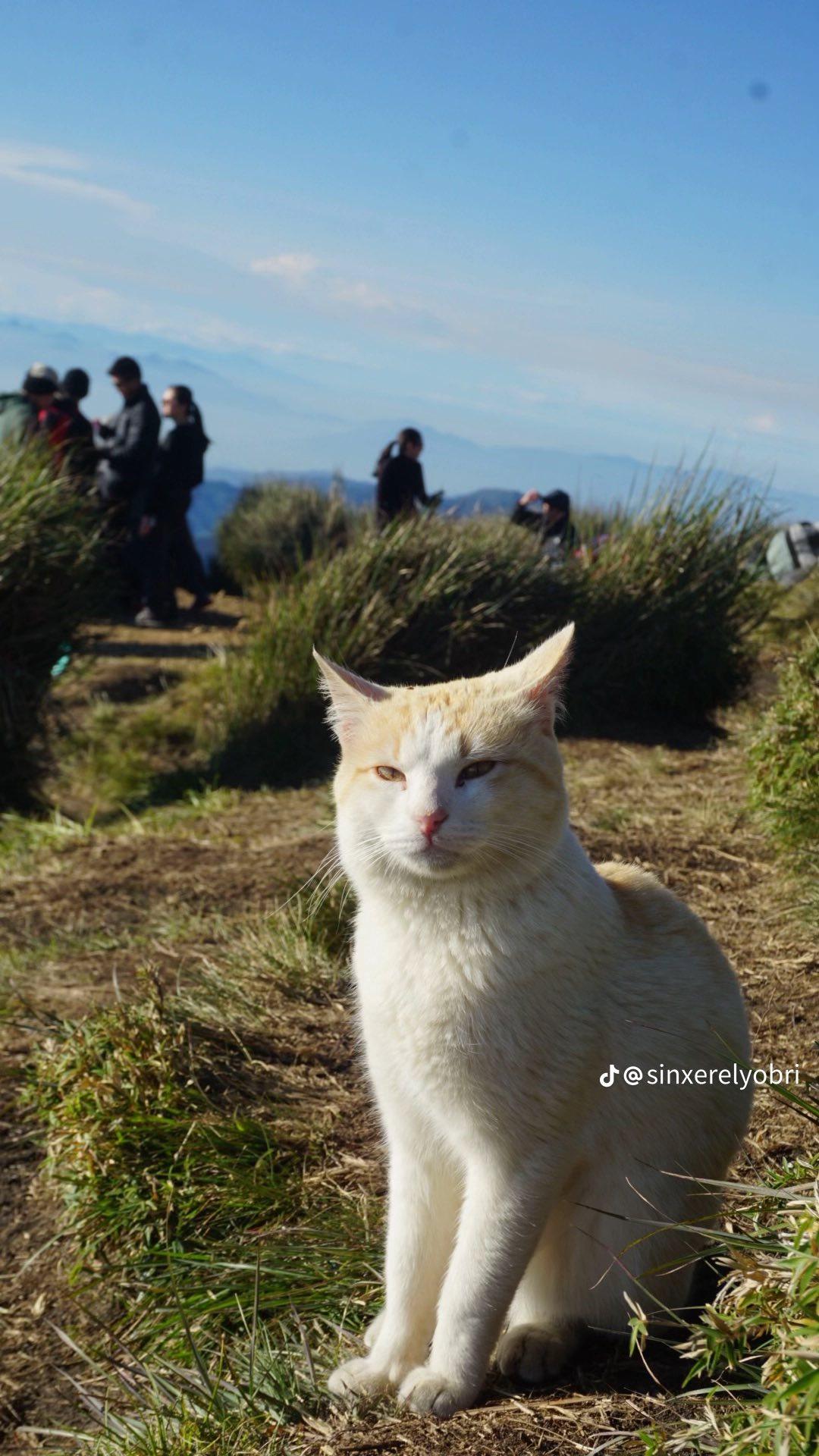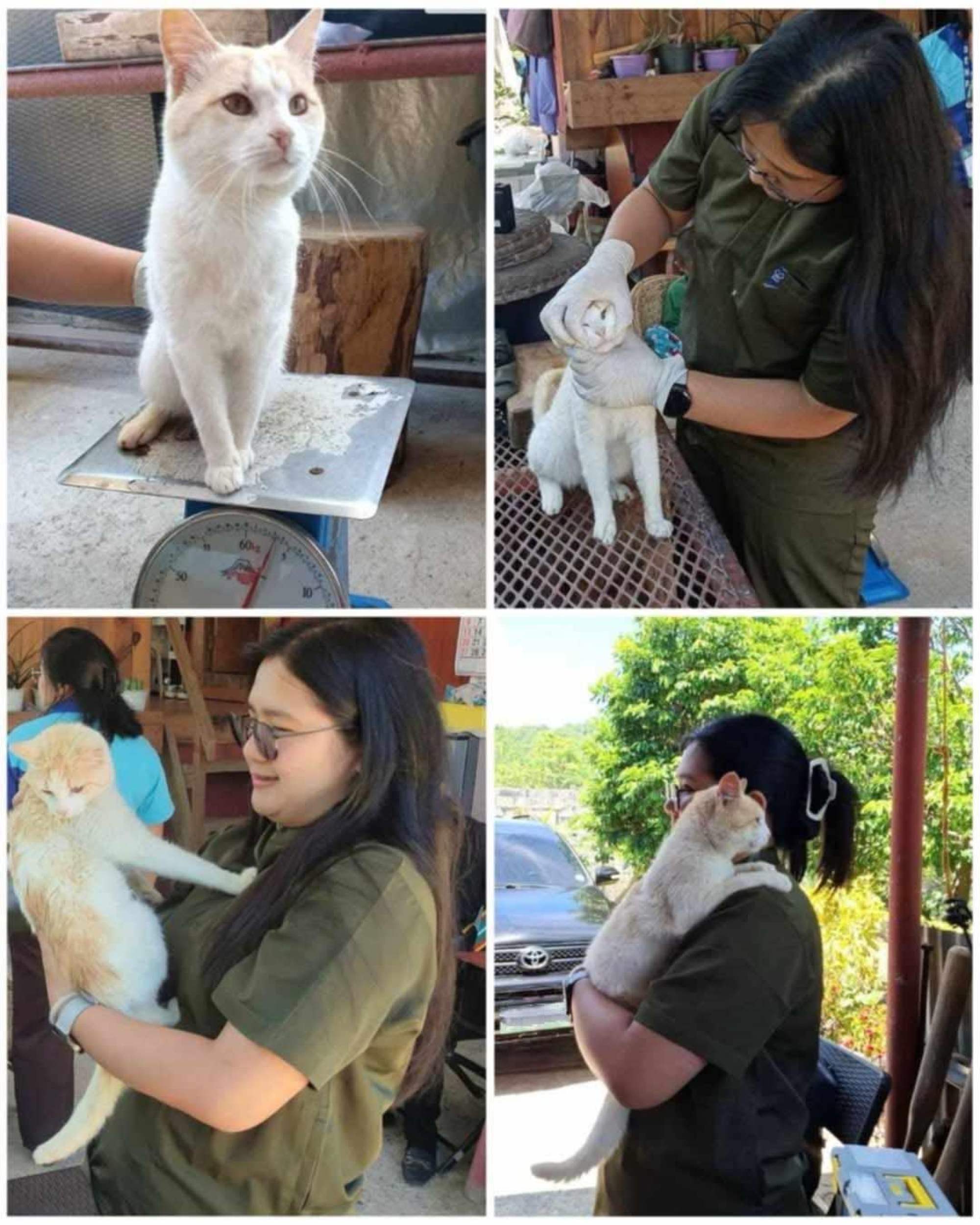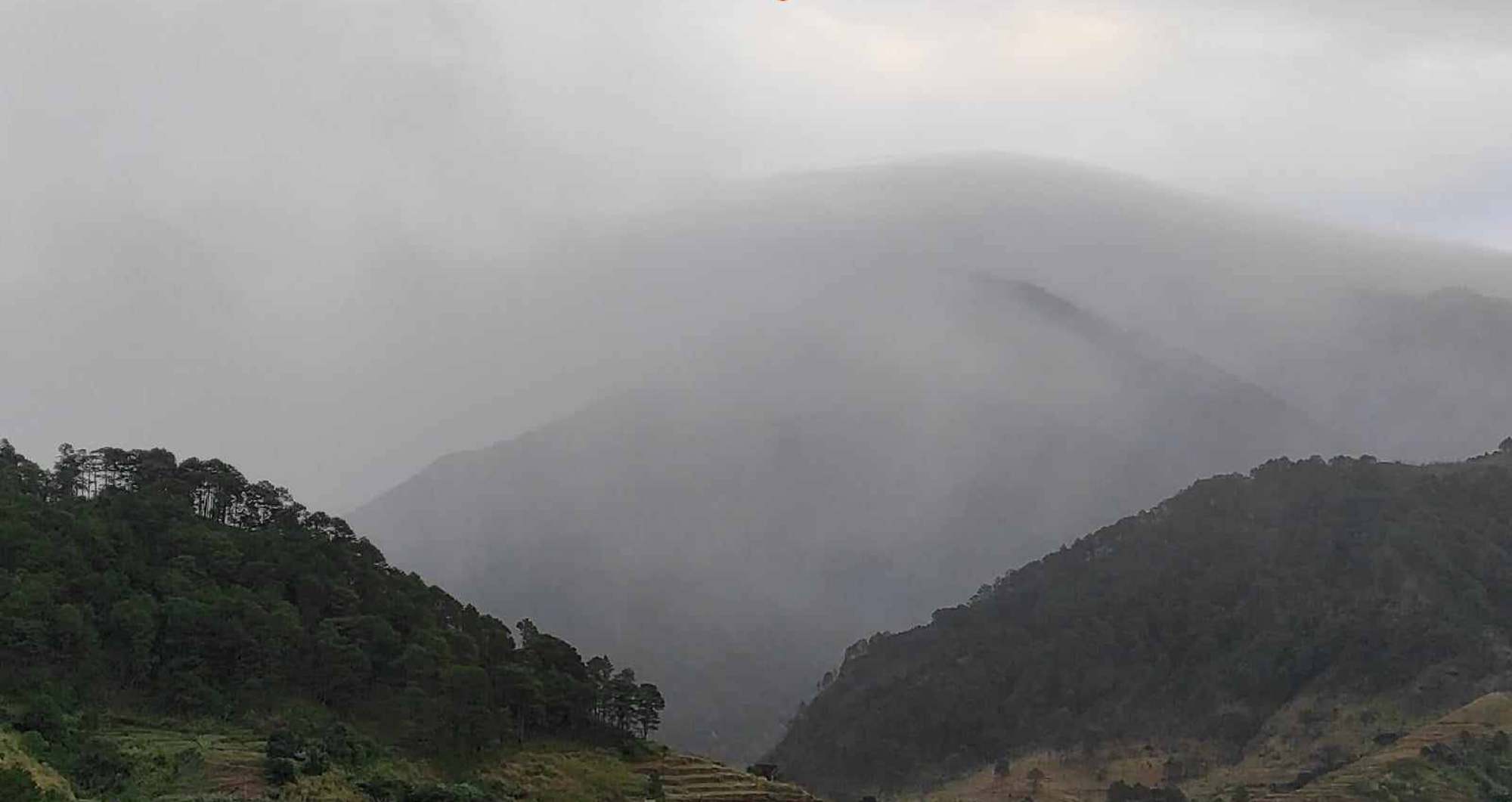Removal of Philippines’ beloved ‘sherpa cat’ Pugal sparks heated debate
Online users berate officials who extracted the animal from popular hiking trail over predatory concerns

The removal of a beloved cat regularly seen roaming the hiking trails of one of the Philippines’ highest peaks has sparked heated online debate between advocates of animal welfare and wildlife conservation.
The affectionate feral cat, named Pugal, gained online celebrity status after photos circulated of it cosying up to hikers and even entering campsites on Mount Pulag in northern Philippines, the country’s third-highest summit.
However, environmental authorities confirmed that the animal was removed from the area, a declared protected landscape due to its biodiversity.
“Pugal is now being taken care of by one of our Pulag Protected Area Management Office (PAMO) staff. A veterinarian is being sent to check on the cat,” the Department of Environment and Natural Resources (DENR) said on its Facebook page last Sunday.
The department’s actions followed a post by a popular local outlet called the Cordillera Sun, which referred to Pulag as “an invasive predator that needs to be removed from the area”.
“Is it cute and adorable? Yes. But it’s also an unwanted predator. It’s an invasive species that hunts down native and endemic wildlife that live within the Mount Pulag Protected Landscape. These include birds, small mammals like cloud rats, and small reptiles,” it wrote.
However, online users argued that human activity such as mining and tourism posed a greater environmental risk to the mountain.
“Pugal is just one cat. A harmless cat. It hurts seeing that they need to remove him from the summit just because he’s a so-called threat! The real ones that destroy our nature are its people,” user Sheila Moro Recapente wrote on Facebook.

“Instead of addressing the real issues Mount Pulag is facing, they chose to remove the cat as if it were the main problem and the sole ‘threat’ to the area’s endemic wildlife … unfairly labelled as an ‘invasive apex predator,’ when all it did was live peacefully in the mountains where it was born and raised,” another commenter Glaiza Flores Cadimas said.
Cats are indeed classified as an invasive species by the International Union for Conservation of Nature.
“Cats have a natural instinct and ability to hunt native species and wildlife, including those at Mount Pulag,” said Heidi Marquez-Caguioa, programme director of the Animal Kingdom Foundation.
Marquez-Caguioa added that such cats usually hunted small animals such as birds, rats, reptiles and insects.
“Environmental expert say cats should not be allowed to roam free in the wild because they pose significant threat to native wildlife and ecosystem. We also cannot be sure that they would be safe from larger wildlife and predators when left on their own. They can be exposed to different kinds of illnesses, or be a carrier of diseases into the wild,” she added.
Biodiversity content creator Celine Murillo shared the same thoughts, but stressed that cats should not be seen as “villains”.
“If we think about it, biodiversity faces a larger and more immediate problem through destructive and extractive industries such as logging and mining,” Murillo said, adding that “along with the enactment of wildlife laws, animal welfare programmes should also be prioritised”.

Furvent Animal Rescue and Advocacy, an animal welfare organisation based in Baguio City in northern Philippines, told This Week in Asia that their proximity to Mount Pulag played a role in their decision to get involved in Pugal’s rescue.
Furvent was one of the first advocacy groups to post about the cat’s case, and has since shared regular updates about the feline to its followers.
“While we were not the ones who initially removed him, our immediate concern was to ensure that his transition into a new environment would be smooth and in his best interest. We reached out to those connected to his case and offered our support in any way we could. Since then, we’ve worked closely with DENR and the adopter to help monitor Pugal and support his adjustment,” said Lovely Tuazon, founder of Furvent.
Tuazon said she and her group met department officials to discuss Pugal’s welfare, where they were assured the cat was in good health and would get regular veterinary check-ups.
Tuazon said Pugal’s case highlighted “how sensitive and intertwined animal welfare and environmental care are, especially when it involves domestic animals in protected ecosystems”.